Covid: Bowls club members in Essex delighted to be back with friends
- Published
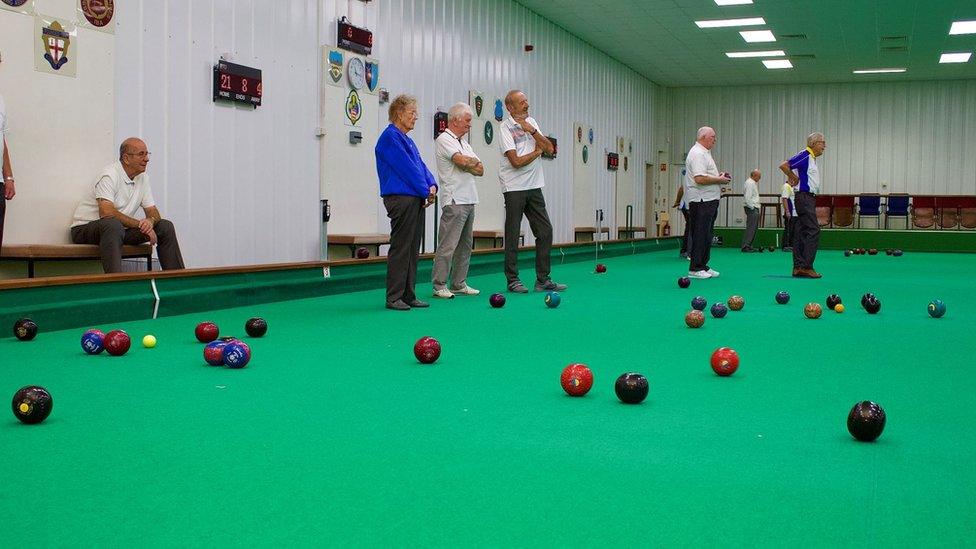
Clacton & District Indoor Bowls Club was closed for much of 2020
Sports clubs and community groups had to shut during the coronavirus pandemic, stripping some people of their valued support networks.
In a report looking at the impact of the lockdowns, external, Anglia Ruskin University says older people, those who live alone and people who had to shield were significantly affected by the lack of social interaction.
Now that these groups are able to get back together, BBC News went to a bowls club to find out how people are getting on.

'I want to go out and speak to people'
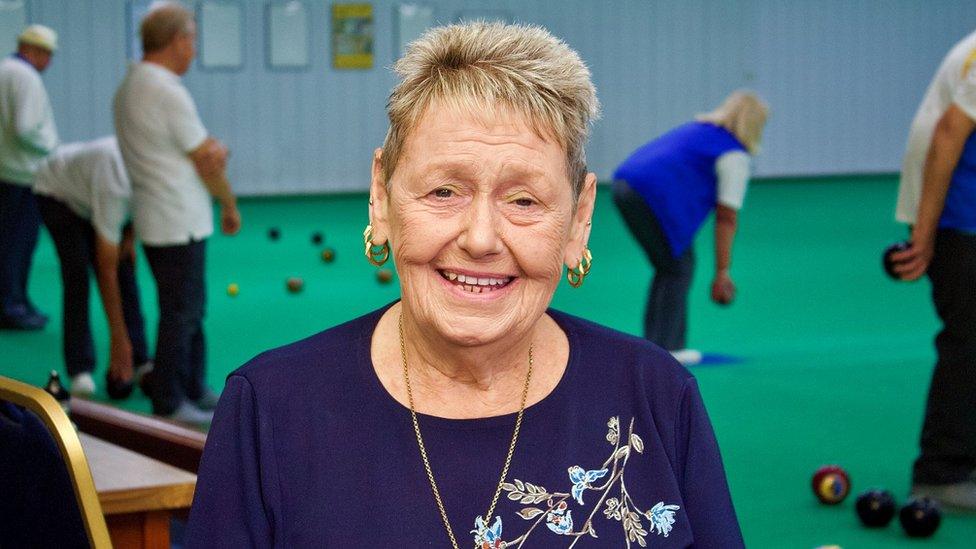
Sandra Harris says she was with her husband and saw her daughter during lockdown but missed her friends
Sandra Harris is the lead secretary at Clacton & District Indoor Bowls Club and had to shield during the pandemic due to a patch on her lung.
She says the bowls club "means a lot" to her.
"I've got something that's competitive, something I can enjoy, and I can get the exercise without going to a gym," she says.
"To me it's lovely and the people are nice. I could sit indoors but I want to come down and meet people.
"I missed coming to the bowls, I missed my exercise.
"My husband was there but you want to meet other people."
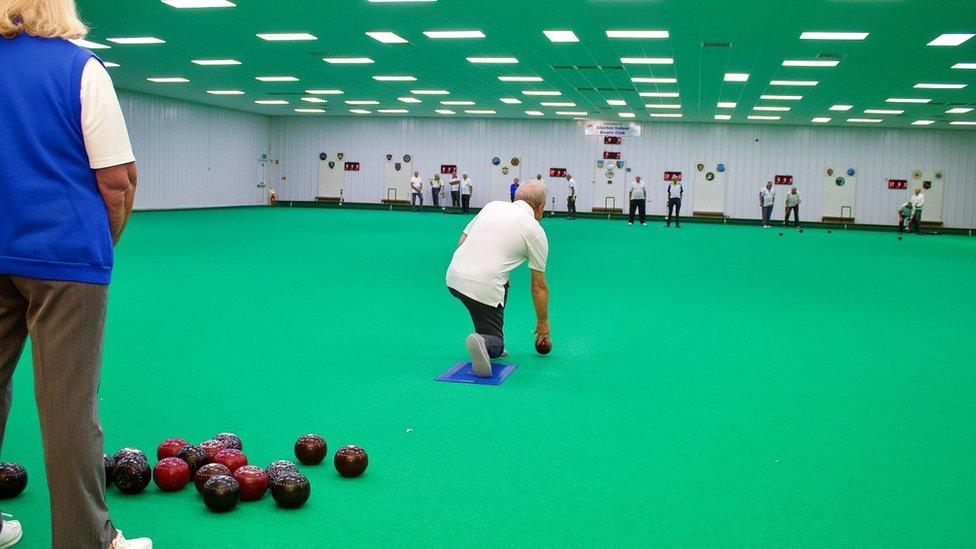
The bowls club reopened in July and August last year and then again once restrictions were lifted earlier this year
Ms Harris says she "definitely" appreciates the bowls club more since lockdown ended.
"When we came back people said they were so pleased to see everyone," she says.

'Lockdown was really hard'
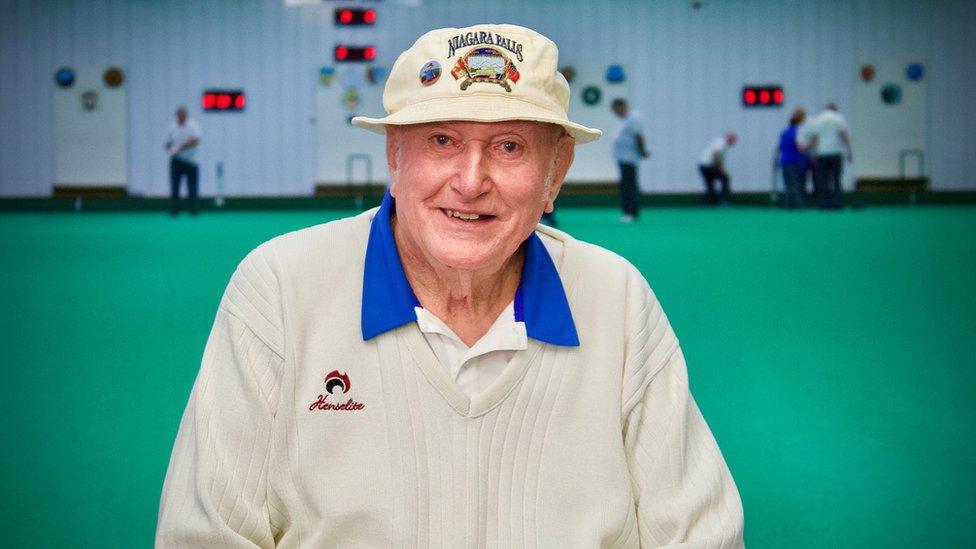
Bowler Harry Perrin says it is good he is able to come to the club again
Harry Perrin lives on his own and says it "means an awful lot" to be back playing bowls.
"You can get your food here, you've got all your friends here," he says.
The 83-year-old says he took things for granted before the lockdowns, which he described as "not very nice".
"Living on your own you couldn't see anybody," he says. "You could only talk on the phone, but it's not a bit like being face-to-face with your friends.
"It was really hard. It was depressing."

'Everyone was glad to get back'
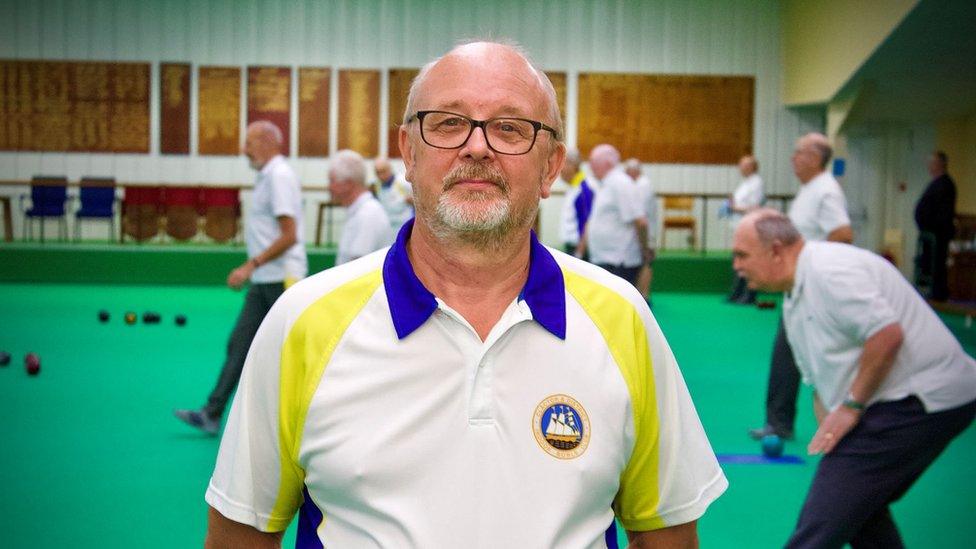
Clacton & District Indoor Bowls Club treasurer James Lamb said some members were "devastated" by the closure during lockdown
Treasurer James Lamb says the club offers a "very important" service to the community.
"We've got a lot of vulnerable members, some will come down for breakfast, watch the bowls, play some bowls, have lunch and then go home in the afternoon and that's every day," he says.
"We are a community club, that's very important. We need to look after these people, it's their life."
The 69-year-old says lockdown was "hard" for a lot of members, and the club.
"We lost our income," he says. "They lose their community spirit, they lose their friends, they lose their meals."
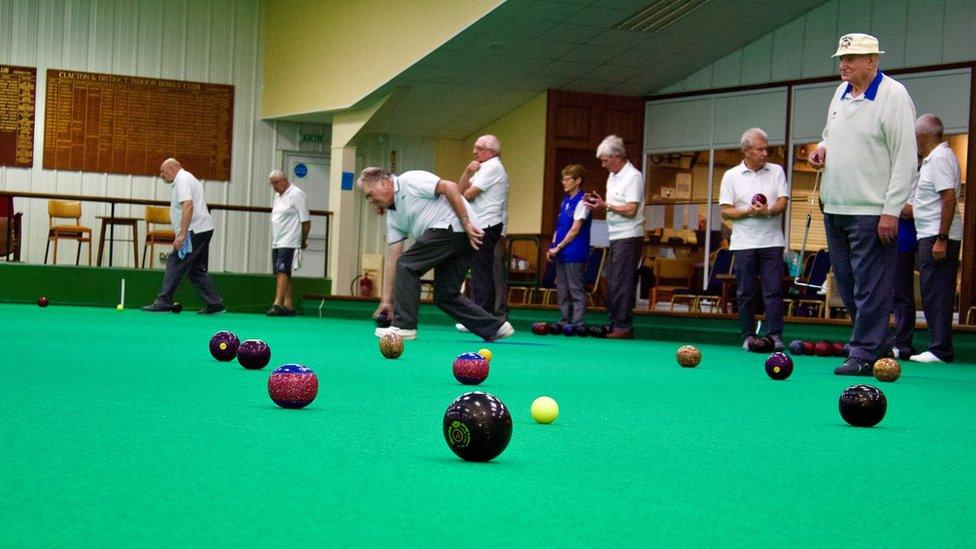
Lockdown meant the club lost out financially, the treasurer said
Mr Lamb says during lockdown the club opened up the kitchen to run a meals-on-wheels service, and brought members in for lunch as soon as they could - which "kept their sanity for some of them".
He says he "certainly did" take the club for granted before lockdown, and there was a "great atmosphere" when members returned.
"Everyone was glad to get back in the club," he says.

'Groups give people a sense of belonging'
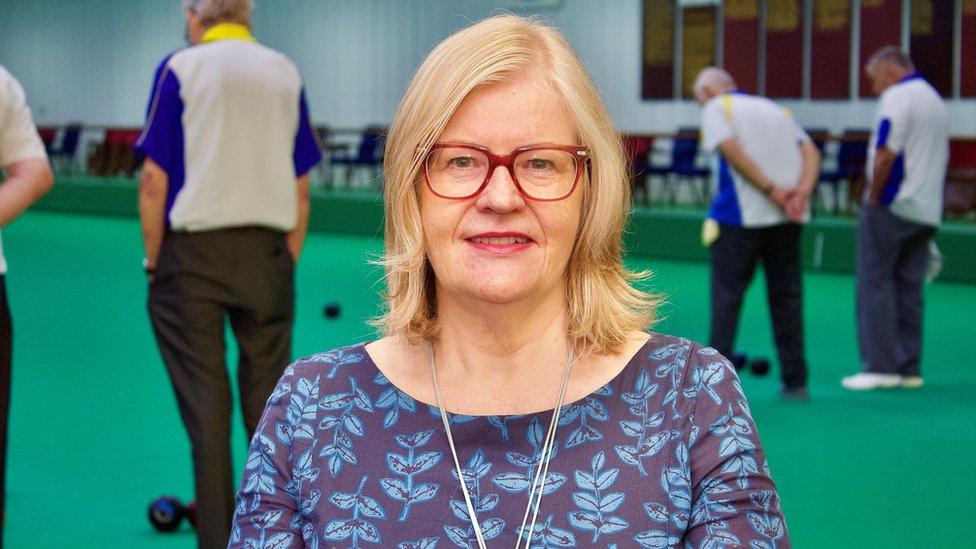
Dr Oonagh Corrigan looked at how community groups in Essex dealt with the lockdowns
Dr Oonagh Corrigan, from Anglia Ruskin University, said the study looked at eight groups and how members coped during the pandemic and lockdowns.
"Older people, and those who were isolating, shielding, and those people living on their own were the most severely affected due to the social isolation during lockdown," she says.
Groups like the bowls club play "a really important role in keeping people well", she says.
"It gives them a sense of belonging. Often they are fit and active by belonging to the group.
"Once people start to mix again there is a sense of loss from lockdown, both emotional and physical, so it's important that these groups are there to support them and they can provide the remedies that people might need."

Find BBC News: East of England on Facebook, external, Instagram, external and Twitter, external. If you have a story suggestion email eastofenglandnews@bbc.co.uk